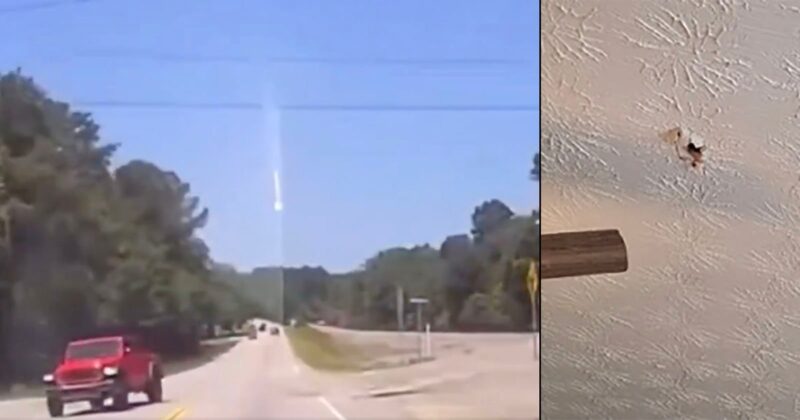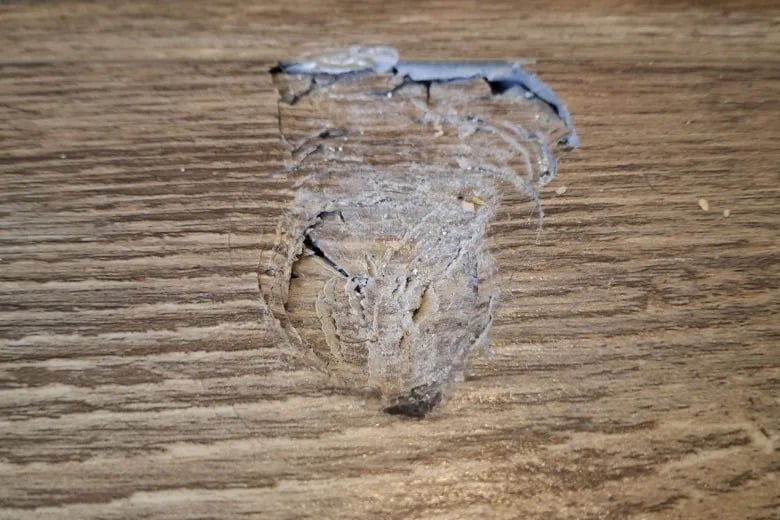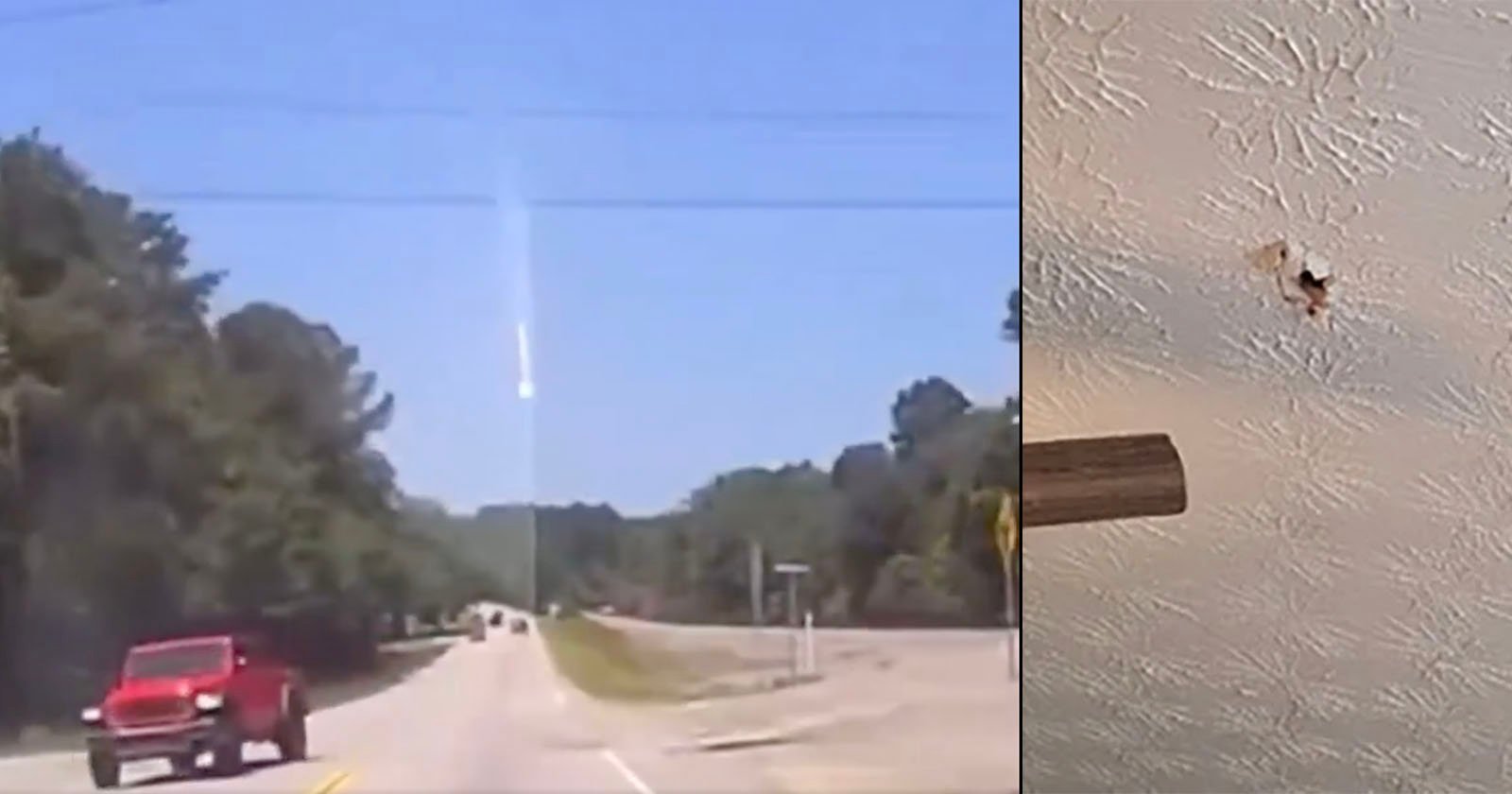 The meteorite as seen by a dashcam, left, and the hole it made in a Georgia home’s ceiling, right.
The meteorite as seen by a dashcam, left, and the hole it made in a Georgia home’s ceiling, right.
A meteorite that was captured on video in broad daylight and that punctured a homeowner’s roof is thought to be 4.56 billion years old — older than Earth itself.
The meteorite crashed to Earth in June and shook homes in the Southeastern United States thanks to a rare sonic boom that followed its arrival. It landed in McDonough, Georgia, and ripped through the roof and ceiling of a home.
“This particular meteor that entered the atmosphere has a long history before it made it to the ground of McDonough,” says Scott Harris, a researcher in the UGA Franklin College of Arts and Sciences’ department of geology, via a news release.
A fireball, or a bright meteorite, was seen across the southeastern United States on Thursday and later exploded over Georgia, creating booms heard by residents in the area, according to NASA.
The American Meteor Society said it received more than 160 reports of a fireball… pic.twitter.com/c7yBQjAQan
— CBS News (@CBSNews) June 27, 2025
NASA has confirmed the fireball witnessed over Georgia and across the Southeast today was a meteor, shown in this video from Atlanta News First viewer Lindsey Rodney. >> https://t.co/jO9xoU3DPK pic.twitter.com/uOwYgeX3qn
— Atlanta News First (@ATLNewsFirst) June 27, 2025
:rotating_light:#BREAKING: At this time Multiple fire departments are actively looking for possible crashed meteor or fire ball that came out of the sky
⁰:pushpin:#UnitedStates | #USA⁰
Multiple fire departments are currently searching for what may have been a meteor crash. Reports began pouring in… pic.twitter.com/TaCbDnanBm
— R A W S A L E R T S (@rawsalerts) June 26, 2025
Harris and his team examined the fragments that landed in the McDonough living room and concluded that the meteorite formed 4.56 billion years ago, which is approximately 20 million years older than Earth.
“It belongs to a group of asteroids in the main asteroid belt between Mars and Jupiter that we now think we can tie to a breakup of a much larger asteroid about 470 million years ago,” Harris says. The homeowner is still finding fragments of space dust in his living room.
 The dent the meteorite made in the homeowner’s floor. | University of Georgia
The dent the meteorite made in the homeowner’s floor. | University of Georgia  Fragments of the meteorite being examined at the University of Georgia.
Fragments of the meteorite being examined at the University of Georgia.
It is reportedly the 27th meteorite found in Georgia and the sixth one that has been witnessed falling.
“This is something that used to be expected once every few decades and not multiple times within 20 years,” Harris adds. “Modern technology in addition to an attentive public, is going to help us recover more and more meteorites.”
Earlier this year, PetaPixel reported on a Ring doorbell camera which captured the sight and sound of a meteorite crashing to Earth.
Image credits: University of Georgia

